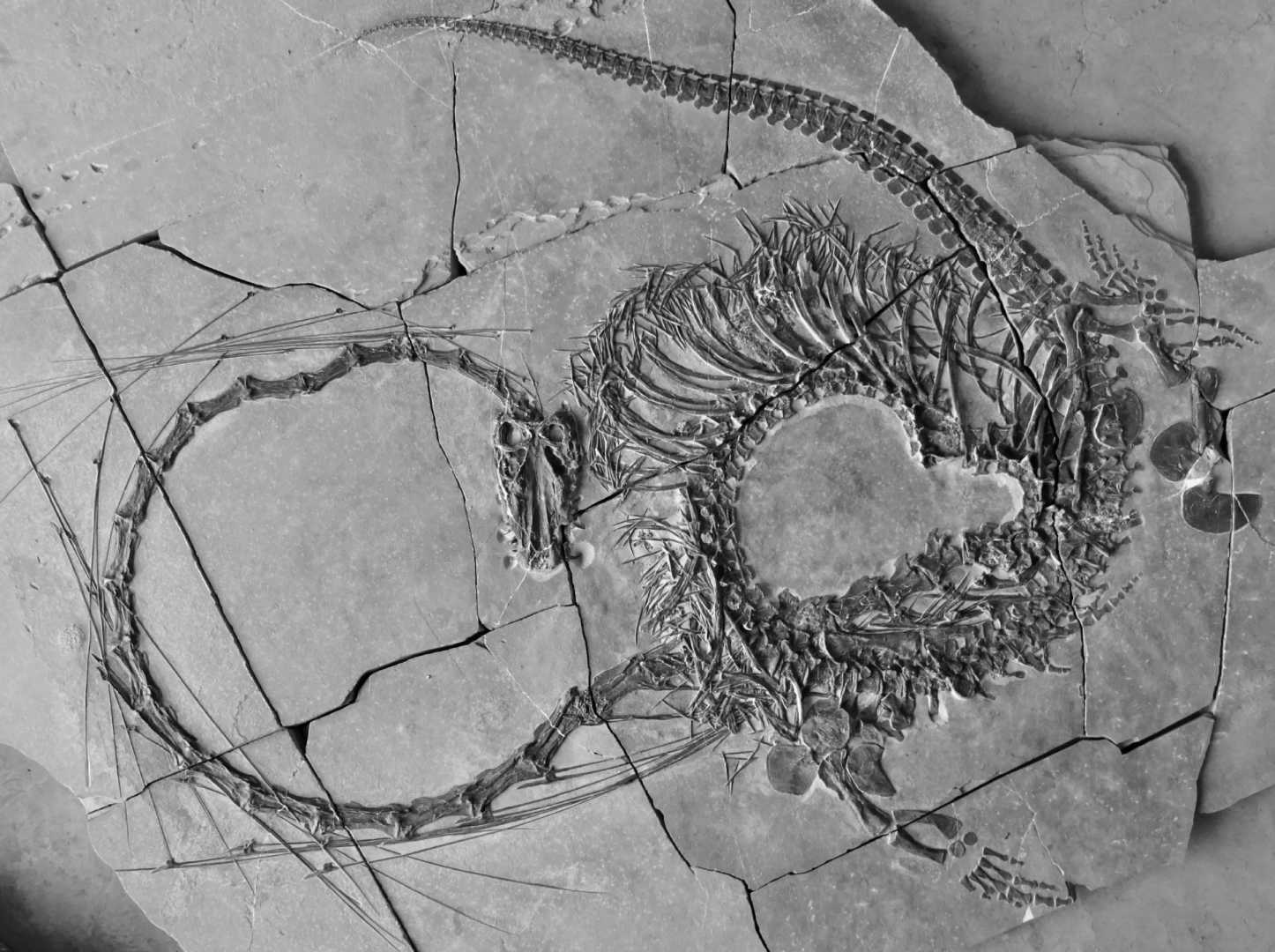News
Fossil Discovery of Ancient Marine Reptile Resembles Chinese Dragon

BEIJING, China — An international team of scientists has discovered a 240-million-year-old fossil of the Dinocephalosaurus, a long-necked marine reptile, in Guizhou Province. The fossil closely resembles the mythical Chinese dragon.
The collaboration involved paleontologists from the United States, United Kingdom, Europe, and China. They worked together to piece together the remarkable puzzle of this ancient creature. Professor Li Chun, from the Institute of Vertebrate Palaeontology and Palaeoanthropology, highlighted the global effort behind the discovery, stating, “This has been an international effort. Working together with colleagues from the United States of America, the United Kingdom and Europe, we used newly discovered specimens housed at the Chinese Academy of Sciences to build on our existing knowledge of this animal.”
Professor Li added, “Among all of the extraordinary finds we have made in the Triassic of Guizhou Province, Dinocephalosaurus probably stands out as the most remarkable.” This find underscores the significance of global cooperation in paleontological research, especially in studying ancient creatures that roamed prehistoric seas.
The fossil’s exceptional preservation and the collaboration involved enhance our understanding of the Dinocephalosaurus orientalis, a species whose fossil records offer unique insights into Triassic life. The anatomy of Dinocephalosaurus suggests it used its long neck to capture prey, particularly fish, using sharp teeth for grasping and consuming food.
Some scientists hypothesize it might have sucked in its prey, although this is still debated among experts. With flipper-like limbs, this creature was well adapted to aquatic life but likely struggled to move effectively on land.
The presence of remarkably preserved fish in its stomach further supports the idea that Dinocephalosaurus was specialized for life in the ocean. Researchers believe that these adaptations allowed Dinocephalosaurus to thrive in its marine environment, making it an efficient hunter in the water.












